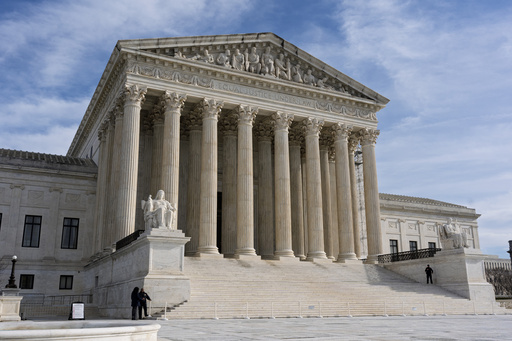A significant setback was delivered to Holocaust survivors and their descendants when the Supreme Court unanimously ruled on Friday, impacting a longstanding legal battle for restitution from Hungary regarding property seized during World War II. This decision nullified an appeals court’s earlier ruling that had permitted the lawsuit to proceed despite a federal law designed to protect sovereign nations, such as Hungary, from being sued in U.S. courts.
The Supreme Court had previously entertained arguments concerning Hungary’s recent attempts to terminate the lawsuit initiated in 2010. The plaintiffs in this case are Holocaust survivors, all now over the age of 90, and their heirs, including individuals who endured the horrors of the Auschwitz concentration camp located in what was then German-occupied Poland.
Originally, the appeals court maintained that the survivors fell under an exemption within the Foreign Sovereign Immunities Act, which allows for legal action regarding “property taken in violation of international law.” For this exception to apply, claimants must demonstrate a commercial connection between the property and the United States. The plaintiffs alleged that Hungary had sold the confiscated property long ago, subsequently mixing the proceeds into its general revenue. They argued that these funds were later used for various purposes, including purchasing military equipment and issuing bonds in the U.S. during the 2000s.
Justice Sonia Sotomayor, authoring the court’s opinion, asserted that merely demonstrating a commingling of funds lacked sufficient grounds to meet the legal criteria established by the statute. The case has been returned to the U.S. Court of Appeals for the District of Columbia Circuit; however, the remaining scope of the lawsuit remains uncertain.
This case has seen previous Supreme Court involvement. In 2021, the justices ruled in favor of Germany in a high-profile, multimillion-dollar litigation concerning the Guelph Treasure, a collection of religious artifacts. That ruling complicated the landscape for similar lawsuits seeking redress for property claimed from Jews during the Nazi regime, placing additional hurdles in the way of such legal pursuits.
Following the Supreme Court’s recent decision affecting the Hungary case, it has been referred back to the appellate court in Washington for further consideration, pending the far-reaching implications of the earlier verdict involving Germany. The appellate court, now reviewing the matter for the third time, has opted not to reject all claims outright.
The plaintiffs aimed to establish a class-action lawsuit against Hungary and its railway system, representing all surviving Holocaust victims and the families of those who perished. The railway played a critical role in the atrocities of the Holocaust, having facilitated the transport of over 400,000 Hungarian Jews to Auschwitz within a mere two months in 1944.




